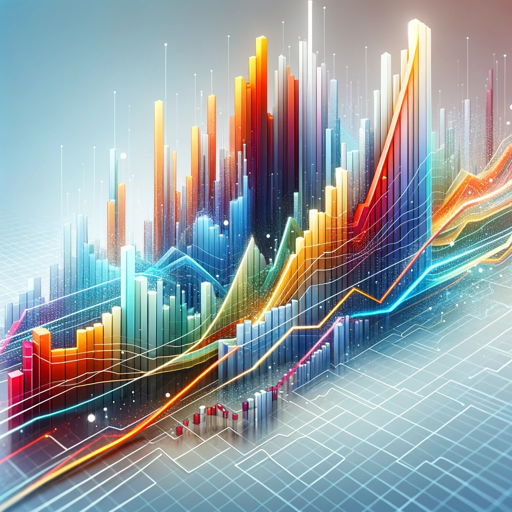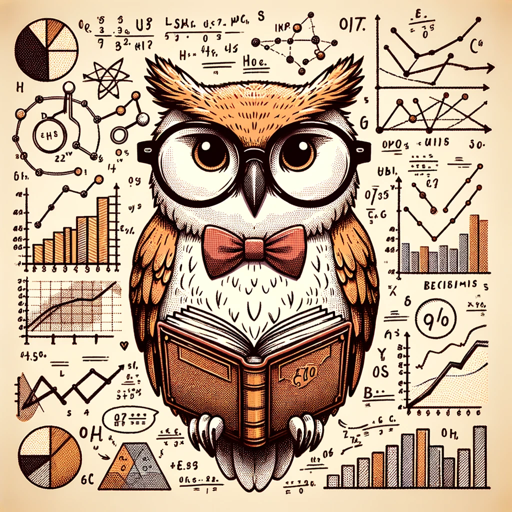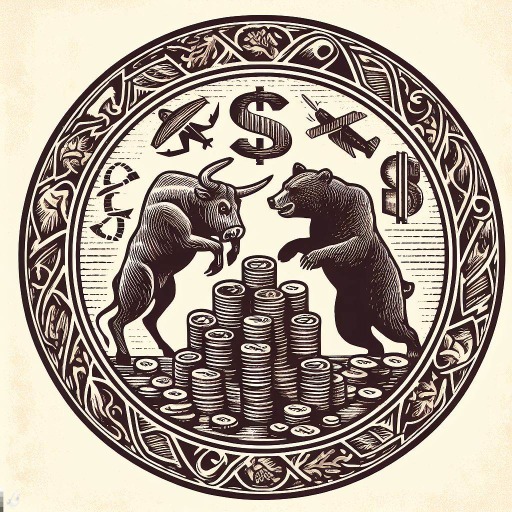Macroeconomics-AI-powered Macroeconomics insights
AI-Powered Insights for Macroeconomics Mastery
Explain GDP in simple terms
Solve this macroeconomic model using Dynare
Interpret this economic graph
Discuss the effects of fiscal policy
Related Tools
Load More
Economics Econ
🔷#𝟏 𝐒𝐩𝐞𝐜𝐢𝐚𝐥𝐢𝐳𝐞𝐝 𝐄𝐜𝐨𝐧𝐨𝐦𝐢𝐜𝐬 𝐓𝐮𝐭𝐨𝐫🔷

Macro Economics Expert
AI Robot Macro Economics Expert

Economics + Math 📊
Error checking and explanation in Econ and Math. Designed to support learning by simplifying and clarifying complex subjects in these disciplines. It serves as an excellent support for students & professionals in the field. Last updated May 30, Feedback

Microeconomics
Expert in advanced microeconomics, engaging in thorough explanations and tailored learning experiences.

economy
- a specialized version focused on economic theories, principles and analysis. Designed to help users understand complex economic concepts, engage in economic policy discussions, and provide insight into a variety of economic issues.

Economics Expert GPT
Economic theory applied to: discussion, current events, historical trends, anything imaginable.
20.0 / 5 (200 votes)
Introduction to Macroeconomics
Macroeconomics is a branch of economics that focuses on the performance, structure, behavior, and decision-making of an economy as a whole. It deals with aggregate phenomena such as GDP, national income, inflation, unemployment, and economic growth. The primary purpose of macroeconomics is to understand how the economy operates and to develop policies that can enhance economic performance, stability, and growth. For example, during a recession, macroeconomic theories and models help policymakers design interventions to stimulate demand and restore economic health. Similarly, in times of inflation, macroeconomic principles guide efforts to stabilize prices and maintain purchasing power.

Main Functions of Macroeconomics
Economic Policy Formulation
Example
Using fiscal policy to combat a recession
Scenario
A government might increase public spending or cut taxes to boost aggregate demand and reduce unemployment during a period of economic downturn. For instance, during the 2008 financial crisis, many countries implemented stimulus packages to revive their economies.
Economic Forecasting
Example
Predicting GDP growth for the upcoming year
Scenario
Central banks and financial institutions use macroeconomic models to forecast economic indicators like GDP growth, inflation rates, and employment levels. These forecasts help businesses and governments make informed decisions. For example, predicting a slowdown might lead to preemptive monetary easing.
Understanding and Managing Inflation
Example
Implementing monetary policy to control inflation
Scenario
Central banks, like the Federal Reserve, adjust interest rates to manage inflation. If inflation is rising too quickly, they might increase interest rates to cool down the economy. Conversely, if inflation is too low, they might lower rates to encourage spending and investment.
Ideal Users of Macroeconomics Services
Policy Makers and Government Officials
These users need to understand economic trends and develop policies to manage economic performance, stabilize the economy, and promote sustainable growth. They benefit from macroeconomic insights to make decisions about taxes, spending, and regulations.
Economists and Researchers
Economists and researchers use macroeconomic theories and models to analyze economic data, forecast future trends, and study the impacts of various policies. They contribute to academic research and policy development, providing insights that shape economic strategies.

How to Use Macroeconomics
1
Visit aichatonline.org for a free trial without login, also no need for ChatGPT Plus.
2
Familiarize yourself with basic macroeconomic concepts and tools. This will help you make the most of the platform’s advanced features.
3
Identify your specific use case, such as academic research, economic modeling, or learning macroeconomic principles, to tailor your experience.
4
Utilize interactive tools and resources like Dynare for economic modeling, and access academic papers for in-depth study.
5
Engage with the platform’s adaptive learning features to receive personalized guidance and recommendations based on your progress and interests.
Try other advanced and practical GPTs
Web Content Wizard
AI-driven content creation, personalized for you.

Analysis I und Lineare Algebra - TU Berlin
AI-Powered Tool for Mastering Math Concepts

Image Gen - generate imgs & interate faster
Unleash Creativity with AI Image Generation

Image story telling
Bring your stories to life with AI-driven imagery.

Terra Expert
AI-powered expert for IaC solutions

Wagtail Wizard
AI-powered Wagtail development assistance.

Microeconomics
AI-powered Microeconomics Assistant

Video Timestamp Creator
AI-powered video timestamping made easy

Surreal Dada Oracle シュールダダオラクル
Unlock Unconventional Thought with AI.

Résumé
AI-powered content summarization and extraction.

Zeus codeZ ⚡️
Empowering coding with AI-driven iterations.
Proofread
Enhance Your Writing with AI

- Academic Research
- Business Strategy
- Educational Tools
- Policy Analysis
- Economic Modeling
Detailed Q&A About Macroeconomics
What is Macroeconomics?
Macroeconomics is a branch of economics that studies large-scale economic phenomena, such as inflation, national income, and GDP.
How can Macroeconomics help in academic research?
Macroeconomics provides access to scholarly papers, detailed explanations of economic theories, and advanced tools for economic modeling, aiding comprehensive academic research.
What are common use cases for Macroeconomics?
Common use cases include academic writing, economic forecasting, policy analysis, business strategy development, and educational purposes.
What prerequisites are needed to use Macroeconomics?
A basic understanding of economic principles and familiarity with analytical tools are beneficial. The platform also offers resources to help users build foundational knowledge.
How does Macroeconomics personalize the learning experience?
Macroeconomics adapts to individual progress, providing tailored recommendations, interactive tools, and personalized feedback to enhance learning and application.